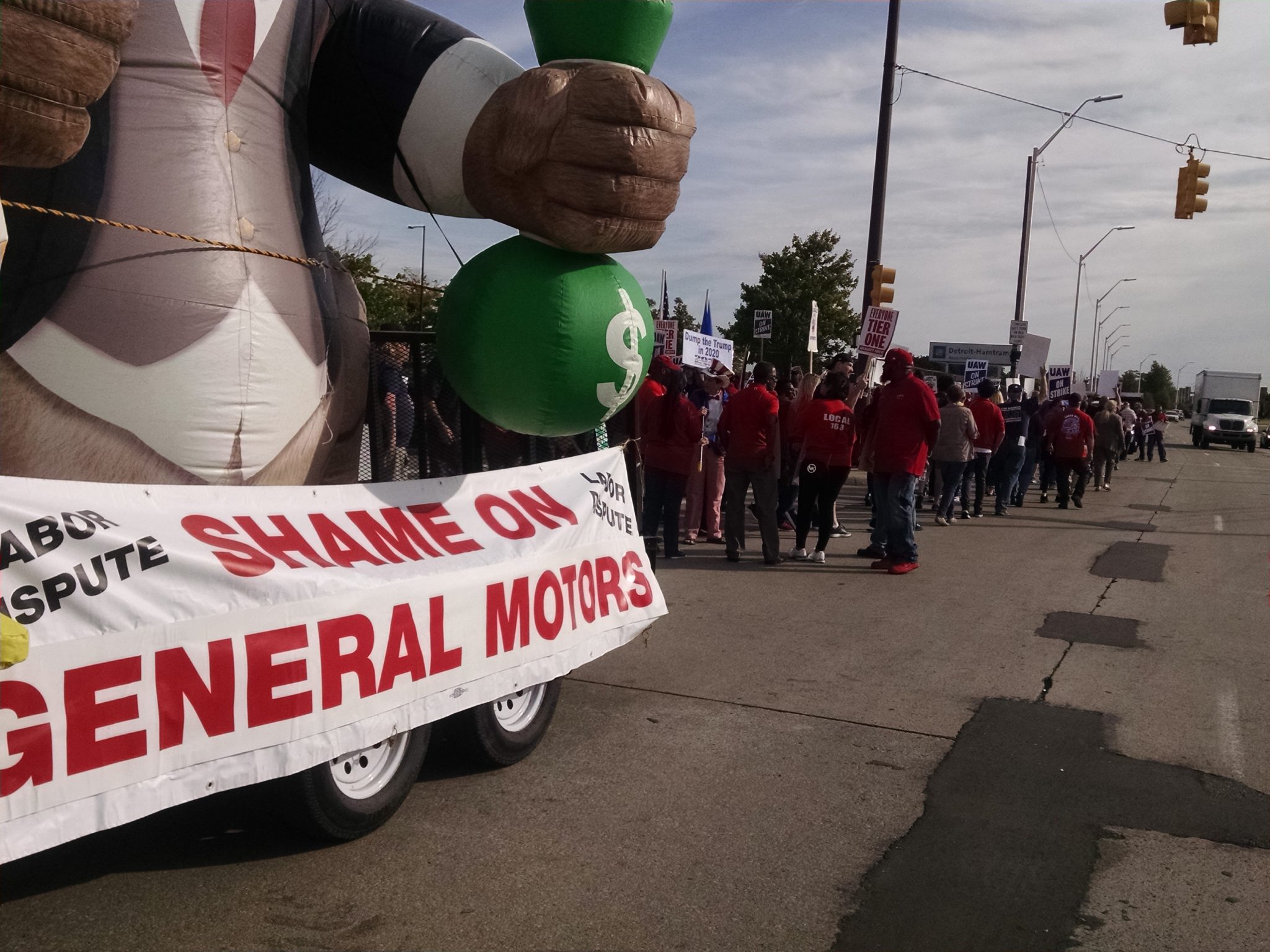General Motors Strike Resolution Shows Unions Still Have Clout
The United Auto Workers and General Motors have reached a tentative contract agreement that could end a month-long strike against the automaker. Some analysts say the deal shows unions still wield considerable clout.

The strike has caused financial pain for both UAW members and General Motors.
Union workers are existing on strike pay that is only a fraction of their usual wage.
Meanwhile the work-stoppage has cut an estimated $1.5 billion from GM’s bottom line.
One of the nation’s foremost labor analysts, the University of California – Berkeley’s Harley Shaiken, says costing GM that kind of revenue shows unions retain substantial leverage in negotiations despite dwindling membership.
“GM’s a very profitable company. But when you start losing billions it focuses the mind.” – Harley Shaiken, University of California, Berkeley
“GM’s a very profitable company. But when you start losing billions it focuses the mind,” he said.
The union is seeking guarantees of job security, among other issues, for workers who are increasingly being replaced by robots. But Shaiken says a new contract might do more than boost wages and benefits for union members. He says it could make GM more profitable by making workers more productive.
“They remain critical [even’ in the most highly automated of operations like an engine plant,” Shaiken said. “Because you keep the machinery running. That really requires skill. And motivation.”
GM officials, who are in the midst of restructuring operations, have said they must find cost savings as vehicle sales slow. Detroit automakers also argue they increasingly face revenue pressure from the Trump Administration’s tariffs on steel and aluminum.
The nationwide strike against GM has rippled beyond the UAW, causing parts shortages and thousands of temporary layoffs among non-union workers.
